The future of feminism: Hilary Pennington with Geetanjali Misra

Transcript
[Geetanjali Misra, a brown South Asian woman with shoulder-length black hair, wearing reading glasses with a red top and clear-rimmed bottom and a floral blouse, sits for a video conversation with Hilary Pennington, a white woman with short blonde hair, wearing a patterned shirt and sitting on an orange chair.]
Geetanjali: You know, when you—when you’re close to the ground and when you, when you convene and you gather and you, uh, I mean, you see rays of resilience, you see—movements begin from that.
[on-screen graphic: Social Justice Leaders on What Matters, Hilary Pennington with Geetanjali Misra]
[on-screen text: Hilary Pennington, Executive Vice President of Programs, Ford Foundation]
Hilary: I am speaking today with Geetanjali Misra, the co-founder and executive director, director of CREA. Geeta has worked on issues of sexuality, reproductive health, gender, human rights, and violence against women from a variety of vantage points—as a program officer at the Ford Foundation, a professor at Columbia University, as president of the board for the Association for Women’s Rights and Development (AWID).
And Geeta, I’m so glad to be talking with you, and let’s start by you telling me a little bit aboutCREA. Why did you decide to found it, and where and how do you work?
[on-screen text: Geetanjali Misra, Co-Founder and Executive Director, CREA]
Geetanjali: So, you know, 20 years ago—time has flown—but, um, at that time I was working with the Ford Foundation and had worked for many years, both in the US and India, and began, began to feel that there were a lot of patterns that were emerging in feminist—in the feminist movement, the women’s rights movement, the violence against women’s movement in India. And CREA began to address three big things that I was observing, my friends were observing, the co-founders were observing.
The first is that there was not an investment in a new generation of leaders. You know, you would see the same executive directors at every meeting and their perspectives were very informed by a violence against women framework. Uh, whereas we as kind of middle-level leaders were beginning to talk a lot more about sexuality and gender, more as larger kind of domains of work that needed to get done.
The second was, as a program officer at the Ford Foundation, I had seen that even though there were a lot of ideas, strategies, interventions, research, knowledge, perspectives in the Global South, somehow everything was dominated by the Global North. And so CREA was definitely formed as an organization that was going to be rooted in the country where it was based, but was always going to work globally.
And the third is, you know, we’re talking about 20 years ago when issues of sexuality and justice intertwined with each other were not at the forefront of many people’s agendas. We wanted to work on people that were excluded—women that were made less worthy of protection.
Hilary: I’d love to come back to double down on this—these issues of how people view gender and sexuality, and for you to talk a little bit more about why that matters so much and how you incorporate that perspective into all your work.
Geetanjali: From a very early stage, we, we, we—you know, you had to disentangle firstly issues of sexuality and gender. And so, you know, we—from very early on, we described sexuality as a domain through which control is yielded over many people’s lives, especially people who transgressed social norms around love, around sexual preference, around sexual identities.
So, you know, instead of thinking of sexuality as this, you know, this little narrow thing that only a few people are interested in, you know, for us sexuality is a domain in which the state has a stake, religion has a stake, medicine has a stake, health has a stake. And what this allows us to do is incorporate many, many excluded people under that domain.
And I think we apply the same principle around gender. We, you know, just like everyone has a race, we feel everyone has a gender. And, you know, we think of gender as an idea that’s 360.
Hilary: And I would love it, Geeta, if you would talk a little bit about what led to your Suspend Judgment! campaign and why you feel, uh, it is more important than ever to suspend judgment. You know, you said a beautiful thing in a blog you wrote, that CREA’s mission is to change the way people think so that we can change the way they act. I’d love to hear you just talk a little bit about, um, your sense of why that needs to be central to the work of feminism in this moment.
Geetanjali: One of the things as humans we all have to know is how much we’re shaped, uh, by our thoughts. You know, our actions are shaped by our thoughts, and our thoughts are gendered, they’re classed, they’re “raced,” you know?
And, and we don’t wake up one day and say, “Oh my God, I’m this feminist” or “I’m gonna be—” You know, it’s, it’s an evolution. And those ingredients that shape us are various. It’s not just a schoolteacher. It’s not just your parents. It’s who you read, where you travel, who you meet.
So the core business is really how do we get people to suspend their own judgments that they bring with them into many spaces and kind of be open to learning, unlearning, thinking, rethinking, uh, so that when they move into whatever intervention they move into, they are able to change the way they act in a way that is more affirmative of people’s rights. Um, and, and I think the Suspend Judgment! campaign was about that. It took all of CREA’s intersectional work—getting people to understand that their judgments matter.
Hilary: And what I love about my understanding of how you’ve done this work is you create a space for people to start to ask themselves questions and for discomfort, right? You really, you really channel discomfort as a powerful force for change. Not lecturing, not righteousness but discomfort and curiosity.
Geetanjali: Yeah. And I think that’s the future of feminism, I think. You know, this critical feminist practice, which is inclusive and intersectional. You know, it centers gender, sexuality, accessibility, rights, and amplifies the voice and visibility of those that have been structurally excluded. And I think we’ve begun to now purposefully not use the word marginalized. Not use—you know, we are now really referring to, uh, people that have been structurally excluded.
And I think that feminism has to pay attention to the ways in which societal architecture, you know, prevents certain people, obviously not all people, from enjoying their full spectrum of rights. You know, and I think feminism has to do a lot more of that. I think we’ve done a good job of focusing on individual harms but less on dismantling the structures that construct and sustain these harms.
Hilary: You also write about how old binaries are being challenged. I mean, this has been partly CREA’s work, right? The binaries within feminism or within activism and human rights between North and South, rich and poor, Indigenous knowledge and academic, um, kinds of knowledge. And what’s so interesting to me is that you write that new, um, axises or new kinds of binaries are contesting or replacing these old ones. And, and, and therefore we risk creating new gatekeepers of who or who is not truly feminist and what is or is not real feminism. What are some of those emerging contestations you see now in the movements?
Geetanjali: As a Global South organization, we always try to make it clear that we don’t believe that there are absolutes in any of this. You know, there is a North in the South, and there is a South in the North. Because otherwise we will be creating a world that’s very dogmatic and fundamentalist.
And I know we are having a very robust conversation in CREA, even now, around the use of the word cis, because maybe the word cisgender maybe creates “cis” and “trans”—another kind of binary.
Hilary: I love that example and it comes back to so much of what you are fundamentally—it’s the practice, it’s the fundamental practice of how you do the work.
You know, we are living in such a complicated moment in the world right now. Um, I know the pandemic has affected, I’m sure your work and I know it’s affected your country in so many ways as in so many other places. What, um, what makes you optimistic at this moment?
Geetanjali: You know, when you, when you’re close to the ground and when you, when you convene and you gather and you, uh, I mean, you see rays of resilience, you see, you know, diverge—diverse forms of resilience emerging, uh, even in more criminalized societies, more authoritarian regimes. And that gives me hope. Movements begin from that.
The strategies become more creative, you know , when you sit down together. And I think, uh, I’ve seen in the last two, three years, even during COVID as to the ways in which there has been solidarity across, across differently situated groups, differently excluded groups. So that gives me hope, the solidarity. I think, sharing resources, um, you know, with, uh, between movements and, uh, you know, really commitment to, uh, new forms of resilience and resistance.
Hilary: I love that, yes. So I just, I want to thank you so much for your time and for this conversation. I really appreciate the work you do and that you made the time to talk like this.
Thank you.
[on-screen text: What’s your take? Join the conversation]
[on-screen graphic: Ford Foundation logo]
Accessibility Statement
- All videos produced by the Ford Foundation since 2020 include captions and downloadable transcripts. For videos where visuals require additional understanding, we offer audio-described versions.
- We are continuing to make videos produced prior to 2020 accessible.
- Videos from third-party sources (those not produced by the Ford Foundation) may not have captions, accessible transcripts, or audio descriptions.
- To improve accessibility beyond our site, we’ve created a free video accessibility WordPress plug-in.
How can changing our thoughts advance feminism and how do our assumptions hold back movements?
Ford executive vice president Hilary Pennington talks with Geetanjali Misra, the co-founder and executive director of Creating Resources for Empowerment in Action (CREA). CREA is a women’s right and non-governmental organization based in India.
“How do we get people to suspend their own judgments that they bring with them into many spaces and be open to learning, thinking, rethinking, so that they are able to change the way they act in a way that is more affirmative of people’s rights?”
Other videos in this series
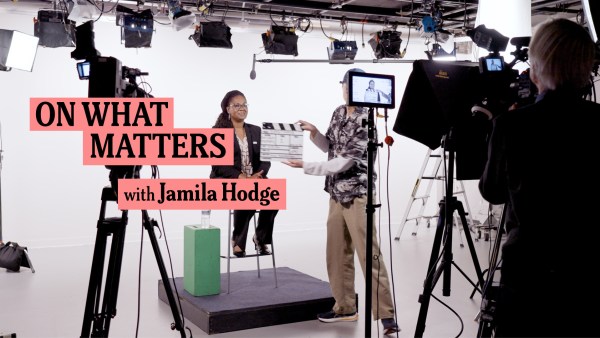
Advancing Community-Based Violence Intervention With Jamila Hodge and Sarita Gupta
Jamila Hodge of Equal Justice USA and Sarita Gupta of the Ford Foundation talk about community-based violence intervention and the importance of promoting a trauma-informed public health response to violence. Jamila explains how, if we want to address institutional racism, we must address the root causes of violence and center those most impacted.
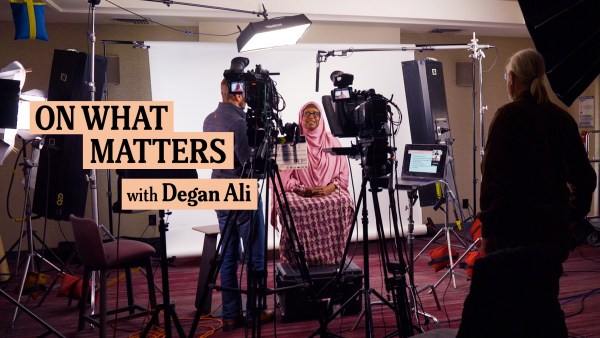
Decolonizing Humanitarian Aid With Degan Ali and Martín Abregú
Degan Ali and Martín Abregú talk about shifting to locally led development and decolonizing aid. Degan shares why we must rethink current structures of providing aid and have local civic society organizations play a stronger and more strategic role in global policy debates.
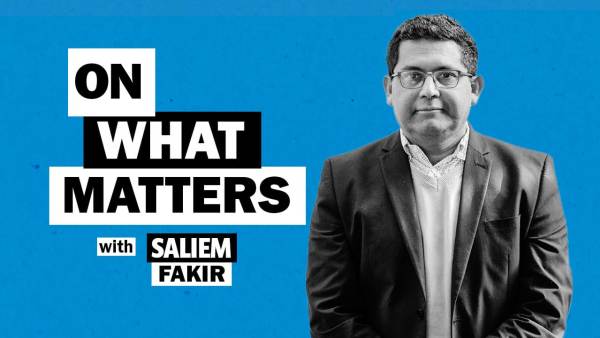
Working Towards a Truly Just Energy Transition with Hilary Pennington and Saliem Fakir
Saliem Fakir, the founder and executive director of the African Climate Foundation, the first grantmaking foundation in Africa focused on furthering solutions for sustainable climate development, joins Hilary Pennington to discuss the urgent need to address climate change and South Africa’s promising Just Energy Transition Partnership.
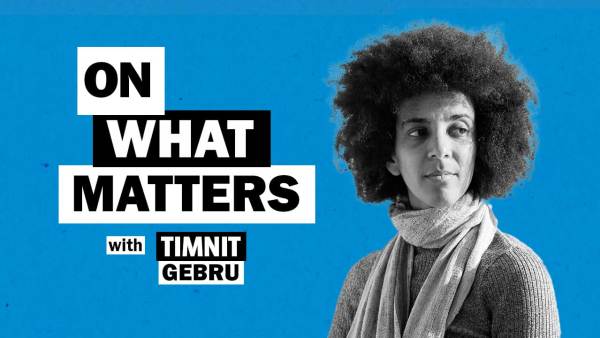
Making AI systems more just with Hilary Pennington and Dr. Timnit Gebru
Dr. Timnit Gebru, founder and executive director of the Distributed Artificial Intelligence Research Institute (DAIR), joins Hilary Pennington to discuss how an inclusive and collaborative approach to creating AI systems can address the uneven benefits and harmful impacts of technology on society.
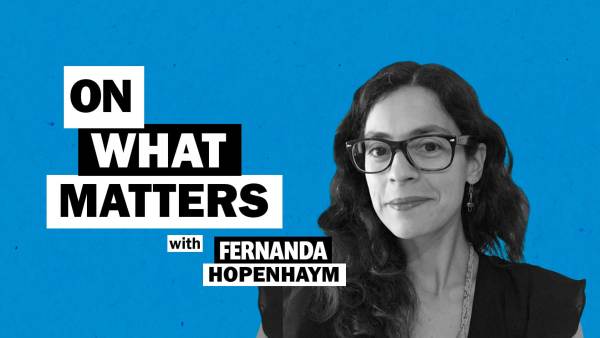
Holding corporations accountable with Hilary Pennington and Fernanda Hopenhaym
Fernanda Hopenhaym is the co-executive director of the Project on Organizing, Development, Education, and Research (PODER), a nonprofit in Latin America that pushes for corporate accountability for human rights and environmental abuses. Fernanda and Hilary discuss how to keep businesses ethical and transparent by using feminist and human rights organizing strategies.
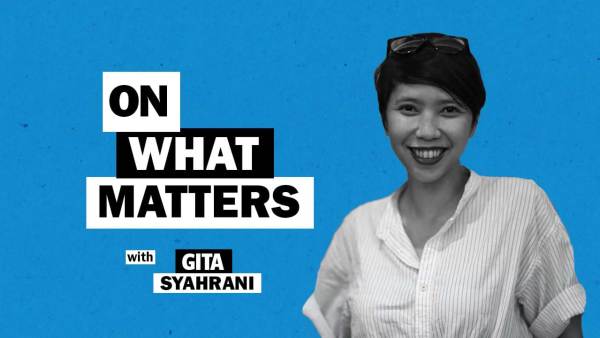
Saving forests while eradicating poverty with Hilary Pennington and Gita Syahrani
Hilary Pennington talks with Gita Syahrani about how engaging Indigenous and local communities in sustainability efforts can lead to greater economic mobility for them. Her work shows how civic engagement at the district level can have global impact.
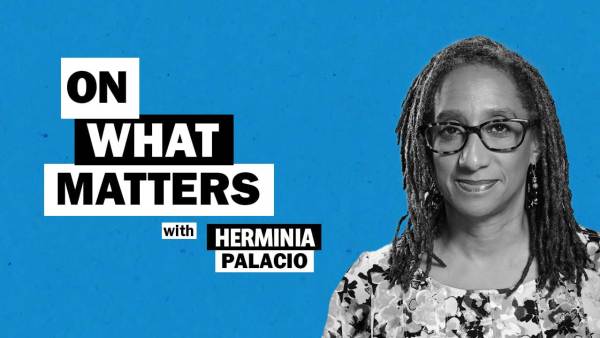
The future of reproductive justice with Hilary Pennington and Dr. Herminia Palacio
Hilary Pennington and Dr. Herminia Palacio discuss this moment in the reproductive justice movement, how different communities are impacted, and what the United States can learn from countries that have won gender and reproductive health victories.
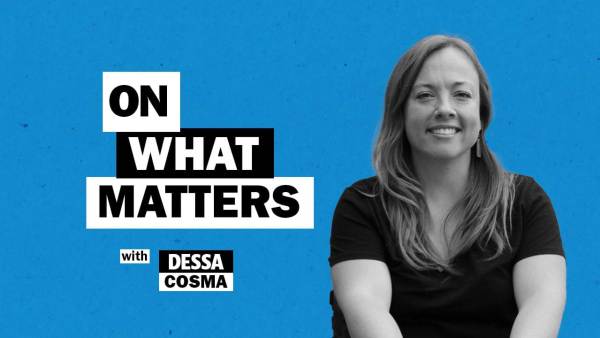
Reimagining how we think about disability with Hilary Pennington and Dessa Cosma
Hilary Pennington talks to Dessa Cosma about disability justice and inclusion. They discuss the importance of using intersectional approaches to activism and how to restructure the economy to be more just for disabled people.
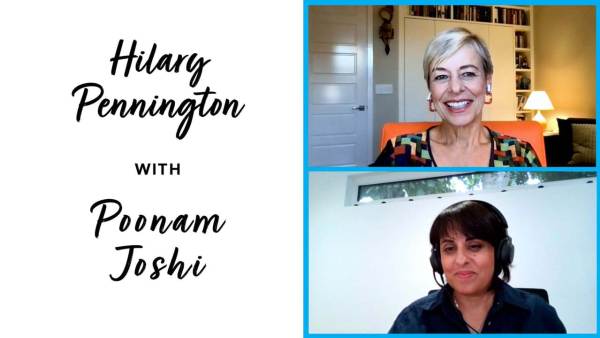
COVID’s impact on civic space: Hilary Pennington with Poonam Joshi
Civic space is essential for democracy. It allows people to participate in society and communicate freely and without discrimination. But, according to Poonam Joshi, director of Funders’ Initiative for Civil Society director, there are threats that need to be addressed before we solidify the civil society we want in the future.
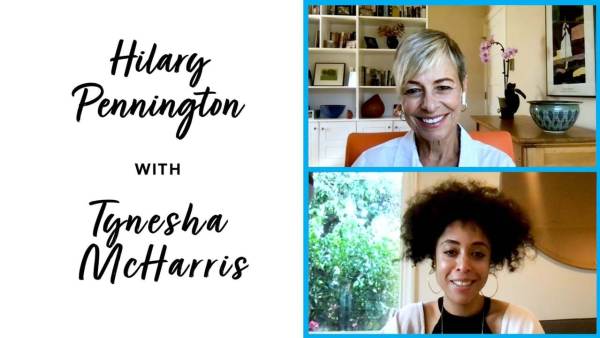
Funding Black feminism: Hilary Pennington with Tynesha McHarris
Black feminist movements are advancing social justice globally. Tynesha Harris, one of the founders of the Black Feminist Fund, aims to channel more support to movement leaders and create a model of true solidarity. Racial, gender, and class injustice need an intersectional approach that acknowledges the inherent value of Black women.

Philanthropy and environmental justice: Hilary Pennington with Laura García
When it comes to climate change, time is running out. But communities all over the world are working on solutions, and philanthropy needs to center their ideas and perspectives to win this fight. Laura Garcia, CEO of GlobalGreen Grants Fund, shares how funding grassroots movements can address challenges at the intersection of social and environmental justice.
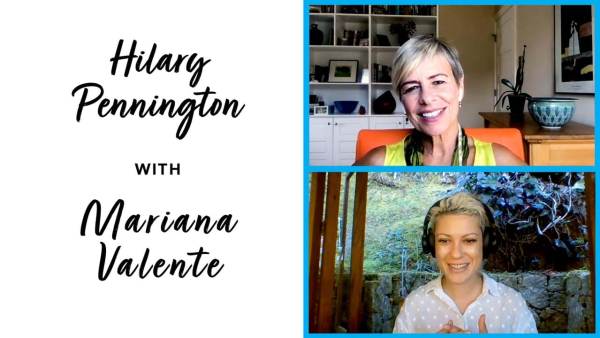
Technology and gender: Hilary Pennington with Mariana Valente
The internet is a force for good, but it must be guided by fundamental human and privacy rights and offer social protection, said InternetLab director Mariana Valente. In this way, technology can advance equality and, with the right policies in place, be used as a tool for advocates to organize.
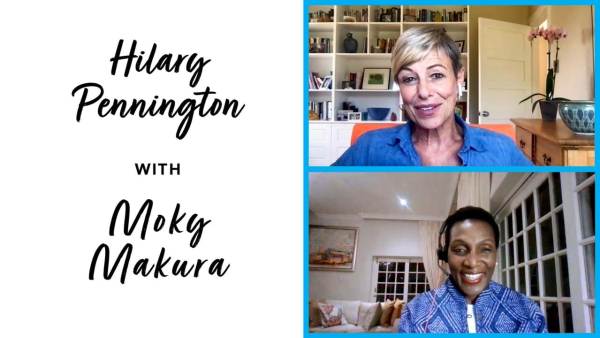
The power of storytelling: Hilary Pennington with Moky Makura
For too long, Africa has been defined in the media by stereotypes and oversimplified narratives. With Ford’s support, Africa No Filter is disrupting these narratives by empowering storytellers helping to create a nuanced, balanced view of the continent and an equitable, inclusive way of how to partner with it.
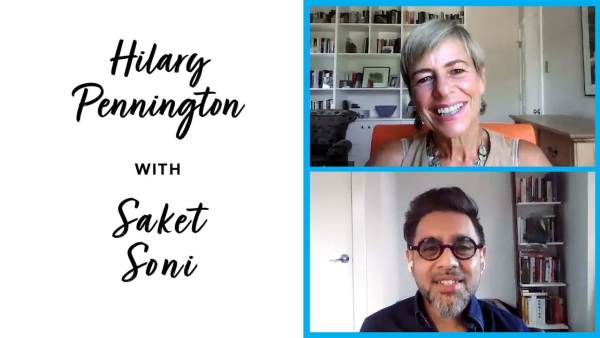
What essential workers need right now: Hilary Pennington with Saket Soni
Disasters present the opportunity to bring us together and give us the chance to reevaluate our priorities and ask what’s really important. Labor organizer Saket Soni sees COVID-19 as a prologue to other threats, like climate change. He says disaster responses need to focus on strengthening essential workers.
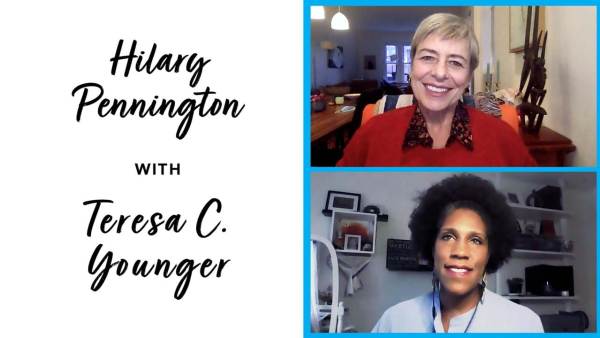
Philanthropy and Black women: Hilary Pennington with Teresa C. Younger
Social justice organizations led by women of color often receive less funding. Teresa C. Younger, CEO of the Ms. Foundation, explains why philanthropy needs to center women of color to address systemic racism and uplift women and girls of color for a more just future.
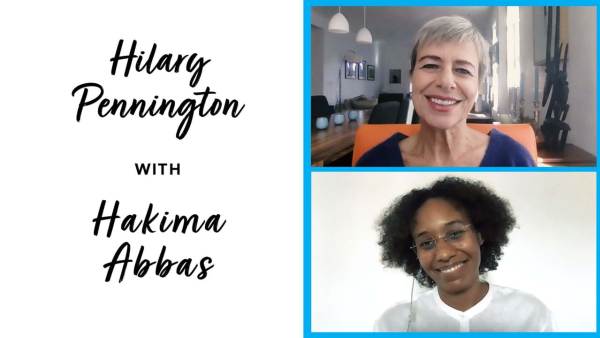
How young feminists are organizing: Hilary Pennington with Hakima Abbas
COVID-19 has impacted the way we work, but it also exacerbated gender inequality in the workplace. Hakima Abbas, of the Association for Women’s Rights in Development, believes we can prevent any further damage by including feminist leaders across the board in devising solutions.
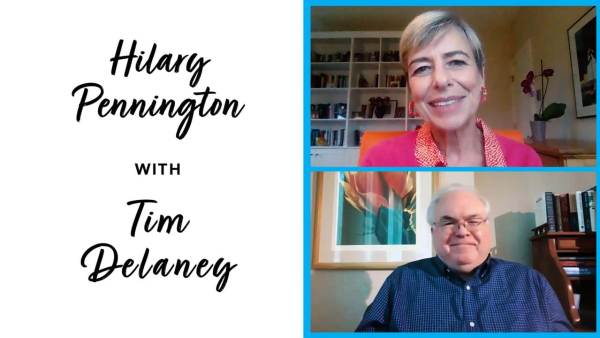
How nonprofits make an impact: Hilary Pennington with Tim Delaney
Over one million nonprofits exist in the United States, but Tim Delaney, the CEO of the National Council of Nonprofits, has an idea to make them even more impactful. To him, bringing social justice groups together can transform philanthropy for the benefit of all.
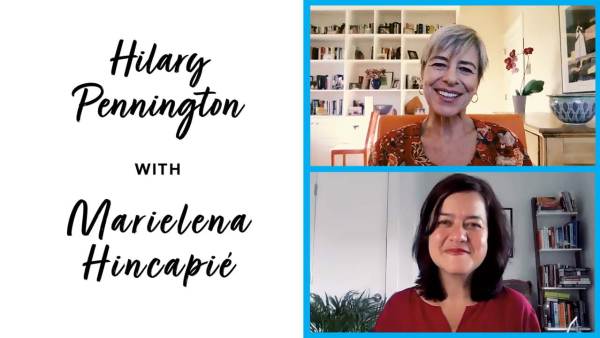
Immigrants are essential: Hilary Pennington with Marielena Hincapié
Immigration has been used as a weapon to divide the United States. The National Immigration Law Center aims to help the country understand that immigrants are not only important members of our communities and essential workers, but they are also valuable political constituencies needed to make American democracy work.
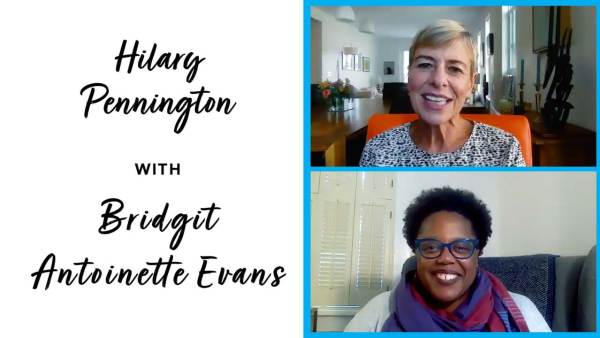
Social justice and pop culture: Hilary Pennington with Bridgit Antoinette Evans
Pop culture plays an important role in advancing social justice. Bridgit Evans of Pop Culture Collaborative produces cultural strategies that build on points of connection to ensure policy changes are not just symbolic. By finding commonalities through culture, she believes we can create a world where everyone feels they belong.
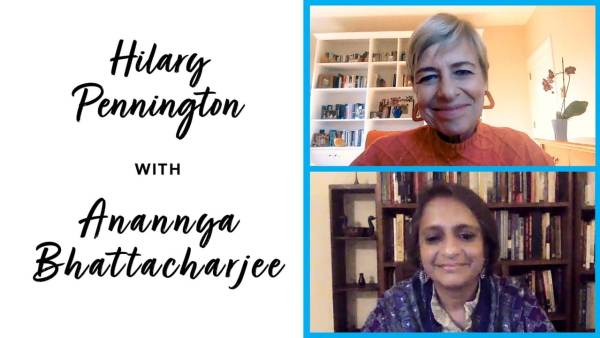
Global work needs to be local: Hilary Pennington with Anannya Bhattacharjee
While the labor movement has worked to improve the lives of garment factory workers globally, activist Anannya Bhattacharjee advocates that solutions need to start locally and come from the ground up to have a significant impact on workers’ lives.
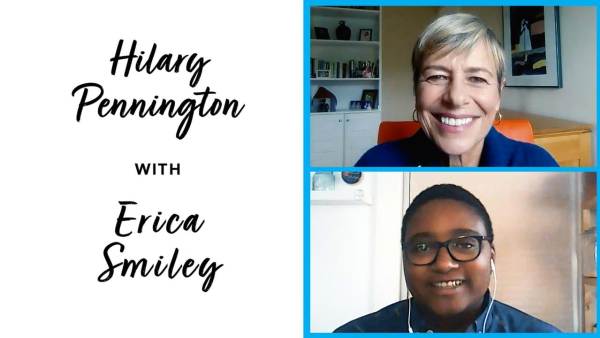
Essential workers are the economy: Hilary Pennington with Erica Smiley
The COVID-19 pandemic has dramatically changed the way we as a world work. As we face this inflection point, Erica Smiley, executive director of Jobs With Justice, believes people—especially essential workers—need to have the right to come together collectively to organize and negotiate their conditions to build a global economy that works for all.

The urgency of this social moment: Hilary Pennington with Eric Ward
We need to dismantle racism to make inclusive democracy truly possible. Eric Ward of Western States Center believes smaller movements can help support bigger waves of change. From creating cohorts of emerging leaders to encouraging small group interactions can help protect democracy and put an end to white supremacy.